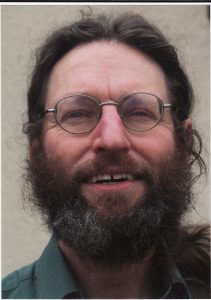Be the Change: Processwork and Environmental Action, Part 2
by Jon Biemer
Ghandi reportedly said, “Be the change you wish to see in the world.” I wear it on a couple tee-shirts. I believe in it. My particular focus is environmental action. How do I put this advice into practice? How do I motivate others to do likewise?
Processwork offers some powerful strategies to consider.
Relationships
In addition to hearing and seeing, Processwork tells us that relationship is a channel through which we communicate at a deeper level. Just by openly sharing environmental values, peers influence each other.
My local business association values me as a good facilitator who also calls himself an environmentalist. Because of my involvement, our annual celebration featured the Johnson Creek Watershed Council pitching its cause.
The church I belong to devoted one collection a month for a year to support environmental justice causes. We raised $4000 while learning about a dozen worthwhile organizations, including Outgrowing Hunger (community gardens), Sustainable Northwest (rural development), and OPAL Environmental Justice Oregon (“training the next generation of movement leaders”).
My friend Kenneth urged me to address food in my book about sustainability. Energy is my career expertise, but thanks to his relationship-channel influence, I learned about regenerative agriculture, what an organic label means, and the importance of perennials like fruit and nuts.
My wife and I regularly influence each other in our environmental practices. When Willow wanted to turn our lawn into a food forest, I did most of the sheet mulching with cardboard and woodchips. My book on sustainability was almost ready to send to the publisher, when Willow told me how she replaces disposables with reusables and toxics with non-toxics, and how she avoids petroleum-based clothing. That became Chapter 2, “Little Things Add Up.”
Community is an extended form of relationship. When I wanted to give away two filing cabinets, our next-door neighbor posted a notice on the local Buy Nothing Project Facebook page and found someone who needed them. Two neighbors on our street were inspired by our food forest to convert their front yards into gardens. Within walking distance of our house, we now have three tiny libraries perched like birdhouses on street-side posts.
Life passages
Processwork advises that we follow the process. Rites of passage definitely offer opportunities to embrace our environmental values.
How about when you go to college? I know of three young people, daughters of my friends, who chose environmental science majors upon leaving secondary school. Honest.
In 1975, I became disillusioned with my job in aerospace and frustrated by a non-existent love life. One day a manager invited me to come to his home to a talk about the problems with nuclear power. This proved to the moment when I found my calling to work on solar energy and energy conservation. My social life improved remarkably as I followed that path.
The kids leaving home and retirement also invite creative responses. My wife Willow and I moved to a much smaller house when my youngest son moved out; that reduced our monthly payments enough for me to accept a Voluntary Early Retirement from the utility company where I worked. I chose to call it a “graduation” – and broadened my work in sustainability. This led eventually to my recently published book. Melanie Platt, a pediatrician who retired, translated her organizing skills into a new career with 350PDX.org. She leads their Fossil Fuel Resistance Team.
Heroes
Another Processwork teaching is we have the attributes of those we admire.
John James Audubon helped us love the environment with beautiful pictures of birds. Is there an environmental artist inside of you? Muhammad, founder of Islam, forbade killing animals for sport and felling trees in the desert. He set aside areas where native plants could not be cut and wild animals could not be hunted. What prophetic environmental message are you called to share? My wife is on a mission to avoid plastics.
Howard Zahniser shepherded the Wilderness Act through sixty-six rewrites. The Howard Zahniser inside me persevered through innumerable rewrites and queries to bring my book to fruition.
Rachel Carson, in writing The Sea Around Us and Silent Spring, successfully combined her career in science with her love of writing. This emboldens me to believe I can do the same with engineering, spirituality and writing. In fact, Processwork suggests that we dance with seemingly conflicted energies until one dance emerges.
Advice From Your Future Self
Another Processwork exercise goes like this: Visualize yourself at ninety years of age, satisfied with leading a fulfilling life. As you look back to this point in time, recognize that this was when you made a decision that made all the difference. What did you do?
Let’s tease your environmental action out of this exercise. What action of yours could ripple out to help the world and/or ripple forward to give you satisfaction in old age?
Being a Climate Action Counselor
A recent Processwork class paired me with another student to learn about our unique facilitator styles. Using his facilitator style, he shared this observation about me: You might be more effective as a counselor than an expert. Hmmm… I am not an expert on your situation, but I can ask helpful questions;
- “Is there a place you love?”
- “What are the needs of your community?”
- “Does your river need to be cleaned up?”
- “Where do you have a say in how things are done? Your child’s bedtime story? Your kitchen? Your yard? Your office? Your neighborhood?”
- “Does your child’s school teach environmental literacy?”
- “Could your grocery store be selling more organic food and using less packaging?”
- “Is there a candidate or ballot measure that needs your support? Do your people need you to step into a leadership role?”
- “Do you have a personal climate action plan?”
In offering such questions, I ask people I meet to dream. Processwork teaches us that dreams, whether sleeping or awake, are powerful. They lead us to action.
By Jon Biemer,
Photo credit (Jon): Tode Oshin
Jon Biemer earned a Certificate in Process-oriented Psychology in 2014. He is the author of Our Environmental Handprints: Recover the Land, Reverse Global Warming, Reclaim the Future, published by Roman & Littlefield. It offers 178 Handprint opportunities to create a more sustainable world. For details check out Jon’s website at www.JonBiemer.com or contact him at jonbiemer@gmail.com.
Photo credit (landscape): Martin Damboldt


